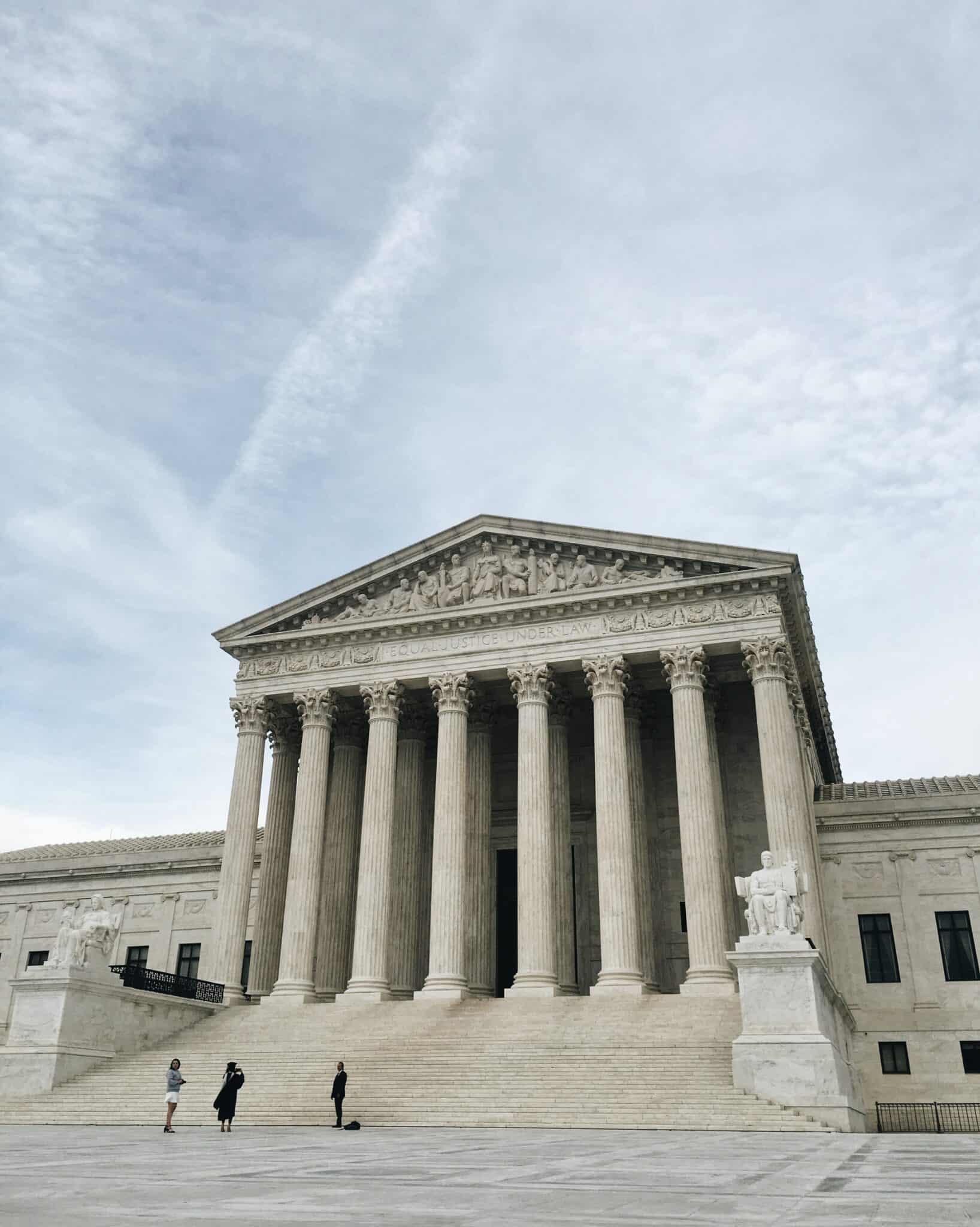
Andrew Strom is a union lawyer based in New York City. He is also an adjunct professor at Brooklyn Law School.
This spring, the Supreme Court will hear oral argument in Groff v. DeJoy, and it will likely hold that religious employees are entitled to their preferred day of rest while secular workers have to accept whatever schedule their employer imposes. What’s especially troubling about this case is that three Supreme Court Justices — Alito, Thomas, and Gorsuch — have invited lawyers to bring cases to the Court to overrule the Court’s 1977 decision in Trans World Airlines v. Hardison. Title VII of the Civil Rights Act requires employers to accommodate the religious beliefs of workers unless the accommodation would impose an “undue hardship” on the employer’s business. In Hardison, the Supreme Court held that an “undue hardship” means anything that imposes more than a de minimis cost on the employer. Bills to overrule Hardison have repeatedly been introduced in Congress to no avail. But today’s activist Court seems unlikely to let that stop it from reinterpreting the statute.
Until recent years, the Court had long adhered to the doctrine of stare decisis, standing by its precedents on the theory, as explained by Justice Brandeis, that it is usually “more important that the applicable rule of law be settled than that it be settled right.” The Court has further recognized that stare decisis carries greater weight when a decision interprets a statute rather than the Constitution. As Justice Kavanaugh has explained, “[t]he Court has ordinarily left the updating or correction of erroneous statutory precedents to the legislative process.” And when it comes to Title VII, Congress had repeatedly done just that. For instance, the Civil Rights Act of 1991 amended Title VII in response to several Supreme Court decisions, and Congress wrote into the statute that it was intended “to overrule the treatment of business necessity as a defense in Wards Cove Packing v. Atonio.”
Justices Marshall and Brennan dissented in Hardison, and Justice Marshall was right to “question whether simple English usage permits ‘undue hardship’ to be interpreted to mean ‘more than de minimis cost.’” I’m not a huge fan of stare decisis. I have a long list of labor cases that the Court has gotten wrong, and it would be great if they would correct some of those mistakes. But, at the same time, there is something unsettling about the Court saying that it misinterpreted a statute 46 years ago when Congress has amended other provisions in the statute but has left the apparent misinterpretation untouched. Fifty years ago, Justice Black argued that once the Court has interpreted a statute, any subsequent reinterpretation is the equivalent of amending the statute. Dissenting from a case where the Court reversed an earlier statutory interpretation, he wrote, “[w]hen the Court changes its mind years later, simply because the judges have changed, in my judgment, it takes upon itself the function of the legislature.”
Justices Alito, Gorsuch, and Thomas have suggested that stare decisis shouldn’t apply here because the events at issue in Hardison occurred when the term “undue hardship” was contained only in the Equal Employment Opportunity Commission guidelines, rather than in the statute itself. But this is a hyper-technical point because, by the time Hardison was decided, the statute had already been amended, and the Court relied on both the statutory language and its legislative history in interpreting “undue hardship.” And, in a 1986 case, the Court referred to its decision in Hardison as defining the meaning of “undue hardship” in the statute.
In arguing that the Court was wrong in Hardison, the Groff petitioners point to the Americans with Disabilities Act (where Congress defined “undue hardship” to mean an action “requiring significant difficulty or expense.” The problem with this argument is that Congress could have applied this definition to the duty to accommodate religious practices, but it chose not to do that.
The facts in Groff show why the petitioner’s argument is so troubling. Gerald Groff is a postal worker who observes Sabbath on Sundays. The U.S. Postal Service now delivers packages for Amazon on Sundays. The Postal Service originally agreed to exempt Groff from Sunday work. But it turns out most postal workers don’t want to work on Sundays. The Postal Service eventually negotiated an agreement with the union that represents Groff and his co-workers requiring Sunday work to be rotated equally if there were insufficient volunteers. If Groff is excused from working on Sundays, it means that his co-workers will have to work on Sundays more often.
Groff is arguing that any burden his religious practice places on his fellow employees is entirely irrelevant to his claim. He argues, “a burden on coworkers isn’t the same thing as a burden on the employer’s business.” Instead, he insists that “Title VII commands employers to afford ‘favored treatment’ — not ‘mere neutrality’ — to employees’ religious practices and to allow them to engage in those practices ‘despite the employer’s normal rules to the contrary.” That argument relies on a Supreme Court decision where the issue was the application of a company dress code to a practicing Muslim who wanted to wear a headscarf. When it comes to issues like dress codes, giving favored treatment to a religiously observant worker does not harm any of her co-workers. But days off are an entirely different matter if, as here, another worker needs to cover for the absent worker. And Groff should lose even if the Court applies the more favorable ADA standard because under the ADA an accommodation is not reasonable if it seeks to override a collectively bargained seniority system.
If the Court accepts Groff’s arguments then we will be living in a world where religious workers get to pick their days off and nonreligious workers may have to work every Sunday if they want to keep their jobs. In 1985, the Supreme Court struck down a Connecticut law that gave workers an unconditional right to refuse to work on their Sabbath. In a concurring opinion, Justice O’Connor recognized that “all employees, regardless of their religious orientation, would value … the right to select the day of the week in which to refrain from labor.” In an ideal world, everyone would be able to find a job with a schedule that accommodates all of their outside interests and obligations. But we don’t live in that world. Instead, we live in a world where many employers maintain 24/7 operations. Sometimes this is by necessity (e.g. hospitals) and other times it is to exploit a market opportunity (e.g. Amazon).
When Congress enacted Title VII, it made a decision to protect workers from discrimination based on religious observance and practice, but its inaction in response to the Hardison decision demonstrates that it’s not easy to strike the right balance when it comes to protecting the religiously observant. If we are going to strike a different balance, that decision should come through an open legislative process where at least those who are unhappy with the outcome can vote the offending legislators out of office.










Daily News & Commentary
Start your day with our roundup of the latest labor developments. See all
January 20
In today’s news and commentary, SEIU advocates for a wealth tax, the DOL gets a budget increase, and the NLRB struggles with its workforce. The SEIU United Healthcare Workers West is advancing a California ballot initiative to impose a one-time 5% tax on personal wealth above $1 billion, aiming to raise funds for the state’s […]
January 19
Department of Education pauses wage garnishment; Valero Energy announces layoffs; Labor Department wins back wages for healthcare workers.
January 18
Met Museum workers unionize; a new report reveals a $0.76 average tip for gig workers in NYC; and U.S. workers receive the smallest share of capital since 1947.
January 16
The NLRB publishes its first decision since regaining a quorum; Minneapolis labor unions call for a general strike in response to the ICE killing of Renee Good; federal workers rally in DC to show support for the Protecting America’s Workforce Act.
January 15
New investigation into the Secretary of Labor; New Jersey bill to protect child content creators; NIOSH reinstates hundreds of employees.
January 14
The Supreme Court will not review its opt-in test in ADEA cases in an age discrimination and federal wage law violation case; the Fifth Circuit rules that a jury will determine whether Enterprise Products unfairly terminated a Black truck driver; and an employee at Berry Global Inc. will receive a trial after being fired for requesting medical leave for a disability-related injury.